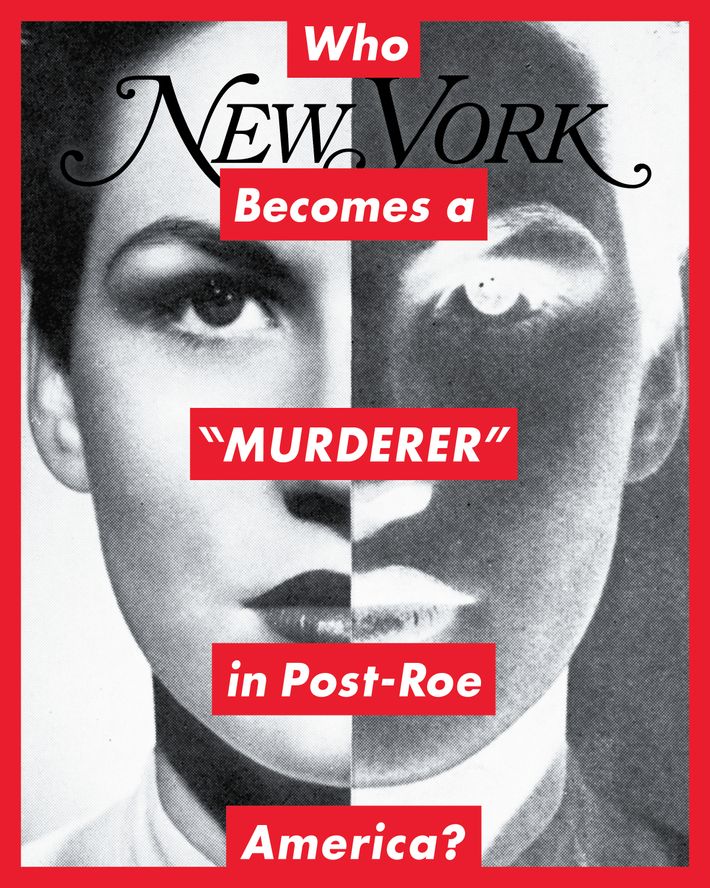With the recent revelation that the Supreme Court of the United States is all but certain to overturn Roe v. Wade, the May 9–22 issue of New York magazine examines the seismic impact that the end of legal abortion access will have on American life and the sociopolitical dynamics that precipitated the court’s likely ruling. The cover image, by artist Barbara Kruger, reimagines her iconic 1989 silk-screen portrait Untitled (Your body is a battleground) in support of abortion rights with what she argues is a critical question of the moment — one that forces us to interrogate the logical implications of the criminalization of abortion.
“If the end of Roe has come as a shock to anyone, that means they haven’t been paying attention. The left and center are asleep at the wheel of a slow-moving car crash and have not addressed the issue with forthrightness,” says Kruger, who also believes that Republicans haven’t come to terms with the radicalism of a post-Roe America. “The question, “Who becomes a ‘murderer’ in post-Roe America?” — and I put murderer in quotes for a reason; it is the discourse of the right — is really the crux of the issue that few on the right have the candor to ask or answer. Who is punished in a world where abortion is ‘murder’?”
In the issue, features writer Kerry Howley profiles Susan B. Anthony List president Marjorie Dannenfelser, whose ruthless fight to end abortion rights has played a pivotal role in shaping the current moment. “This is a story about Dannenfelser but also the radical decontextualization of the fetus — the obsessive interest in one particular part of a woman’s body at the expense of the rest,” says Howley. “Given the likely loss of Roe, I wanted to examine the way the uterus has been unveiled, exposed, as a necessary precondition for the intense surveillance going forward.”
The issue also includes writer-at-large Rebecca Traister on how abortion’s illegality would affect everyone and how muffling that alarm is an error (factually, practically, and politically) and senior correspondent Irin Carmon on the looming threats to the abortion funds that help low-income people access care.
